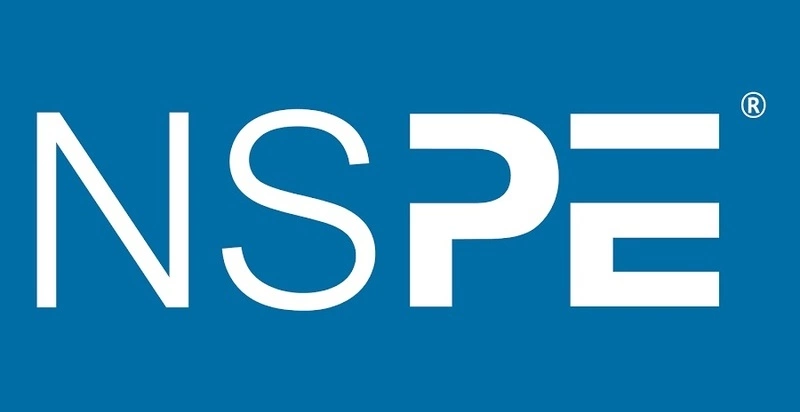Engineers, by ethical standards and professional codes of conduct, should be held to high ethical standards. These ethical standards are often set in the form of a code of ethics that engineers pledge to abide by while practicing their profession.
As a member of professional engineering organizations such as the National Society of Professional Engineers (NSPE) or the Institute of Electrical and Electronics Engineers (IEEE), engineers are required to follow their codes of ethics.
In this blog, we will discuss the similarities and differences between the IEEE and NSPE codes of ethics. Let’s begin with a brief explanation of the two well-known professional engineering organizations: IEEE and NSPE.
Table of Contents
1. Institute of Electric and Electronics Engineers (IEEE)
2. National Society of Professional Engineers (NSPE)
3. Difference Between IEEE and NSPE Code of Ethics
Institute of Electric and Electronics Engineers (IEEE)

The IEEE is a professional association with more than 400,000 members in 160 countries. It was founded in 1884 and has the motto “Advancing Technology for Humanity.”
The IEEE organization is designed for experts in all aspects of the electrical, electronic, and computing industries as well as fields associated with science and technology that underlie modern society.
Fun fact: IEEE’s roots go back to 1884 when electricity began to become a major influence in society.
What are Codes of Ethics?

The Code of Ethics is a document that outlines ethical principles and standards that engineers are expected to adhere to. The code is designed to provide guidance on ethical decision-making, promote professional behavior, and help engineers maintain public trust.
Read more about: engineering ethics [what is it and why is it important].
The IEEE Code of Ethics
The IEEE code of ethics states that engineers should “uphold the highest standards of integrity, responsible behavior, and ethical conduct in professional activities.”
One of the principal aims of the IEEE is to promote ethical practices among its members. To this end, the IEEE has an Ethics and Member Conduct Committee that makes recommendations for educational programs to promote the ethical behavior and professional conduct of members and staff, among other activities, and investigates complaints of ethical misconduct by IEEE members.
The IEEE code of ethics adheres their members to three main ethical principles: [1]
I. To uphold the highest standards of integrity, responsible behavior, and ethical conduct in professional activities.
II. To treat all persons fairly and with respect, to not engage in harassment or discrimination, and to avoid injuring others.
III. To strive to ensure this code is upheld by colleagues and co-workers.
National Society of Professional Engineers (NSPE)

The NSPE was founded in 1934 and has more than 26,000 members. The mission of the professional organization is to serve as an advocate for the needs of the professional engineering community and attracts professionals with a high degree of integrity. The NSPE fosters innovation, career advancement, collaboration, and professional license acquisition for its members.
Fun fact: A group of professional engineers got together in New York City in 1934 to found a society dedicated to the non-technical needs of licensed professional engineers.
The NSPE Code of Ethics
The NSPE code of ethics states that ethical practices are essential for maintaining public confidence in the engineering profession. It further states:
“As members of this profession, engineers are expected to exhibit the highest standards of honesty and integrity. Engineering has a direct and vital impact on the quality of life for all people. Accordingly, the services provided by engineers require honesty, impartiality, fairness, and equity, and must be dedicated to the protection of the public health, safety, and welfare.” – NSPE Code of Ethics for Engineers
Specific ethical issues addressed by the NSPE code of ethics include conduct in their professional duties that violates federal or state law, dishonest or fraudulent actions, breaching client confidentiality, conflicts of interest, conduct that harms professional reputation, disclosing trade secrets without permission, practicing beyond one’s capabilities or education level, plagiarism with respect to another person’s ideas or work product, misrepresentations related to the status of a degree obtained outside the U.S., false ethical allegations, and failure to comply with ethical requirements and professional ethics of professional engineering societies.
NSPE codes of ethics for professional engineers has six fundamental canons: [2]
- Hold paramount the safety, health, and welfare of the public.
- Perform services only in areas of their competence.
- Issue public statements only in an objective and truthful manner.
- Act for each employer or client as faithful agents or trustees.
- Avoid deceptive acts.
- Conduct themselves honorably, responsibly, ethically, and lawfully so as to enhance the honor, reputation, and usefulness of the profession.
Difference Between IEEE and NSPE Code of Ethics

The ethical code provided by IEEE and NSPE has a lot of similarities. The distinction between IEEE and NSPE codes of ethics is in the degree of precision and detail. The IEEE codes of ethics are short as compared with the NSPE codes.
The shorter codes are intended to be a general framework that leads the professional of society toward certain ethical objectives, moral principles, and obligations. These rules have many advantages. [3]
The IEEE’s fundamental principles are simple, making them more likely to be absorbed by society members. They are also more receptive to personal interpretation and application, which may help you apply the principles in a wide range of circumstances.
The disadvantage of the shorter codes is that they fail to provide a precise level of action. A member must interpret the codes in order to determine which course is appropriate. Fortunately, most of these signals are simple and easy to understand.
On the other hand, the longer codes of ethics are more specific. These codes have the advantage of offering precise answers to certain ethical dilemmas that their adherents may encounter. A disadvantage of longer codes is that they may be intimidating to many members because of their length and complexity, so they are less likely to practice them thoroughly.
Both IEEE and NSPE codes of ethics oblige engineers to hold paramount the safety, health, and welfare of the public. However, not all codes discuss the same rules and guidelines. In fact, the IEEE codes of ethics do not address an engineer’s employer, but the NSPE codes of ethics do. The fourth fundamental canon states, “Act for each employer or client as faithful agents or trustees.”
Bottom-line
Both IEEE and NSPE are professional engineering associations. They have an engineering code of ethics that must be followed by their members. A professional engineer always adheres to the code of ethics and moral principles. The IEEE codes of ethics are short and provide a general framework that leads the professional of society toward certain ethical objectives and obligations. On the other hand, NSPE’s code of ethics goes into considerably greater depth.
References:
[1] https://www.ieee.org/about/ethics/index.html
[2] https://www.nspe.org/resources/ethics/code-ethics
[3] https://ethics.csc.ncsu.edu/basics/codes/study.php




![Types of Engineers and What they Do [Explained]](https://www.engineeringpassion.com/wp-content/uploads/2022/04/types-of-engineers-and-what-they-do-280x210.jpg)





Leave a Reply